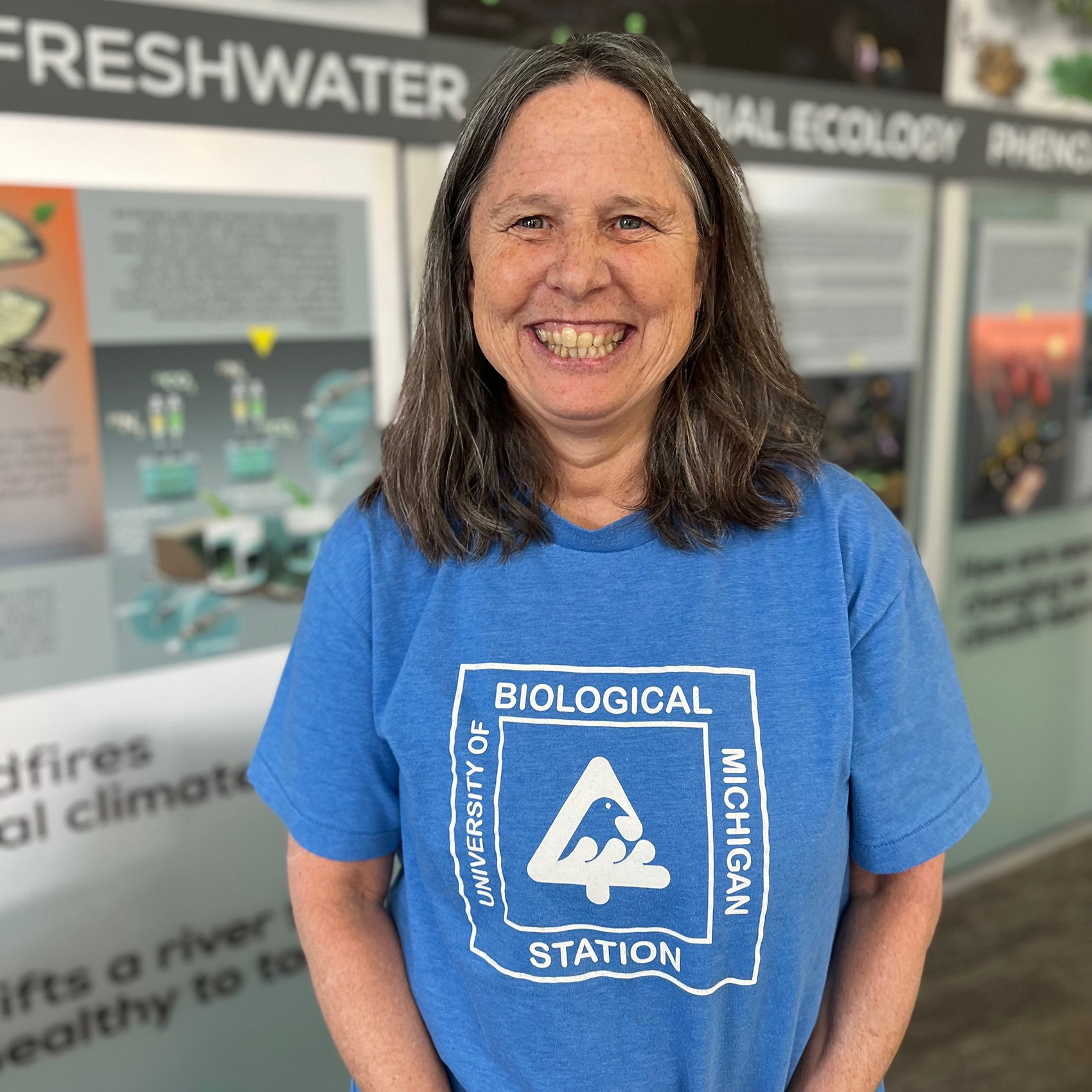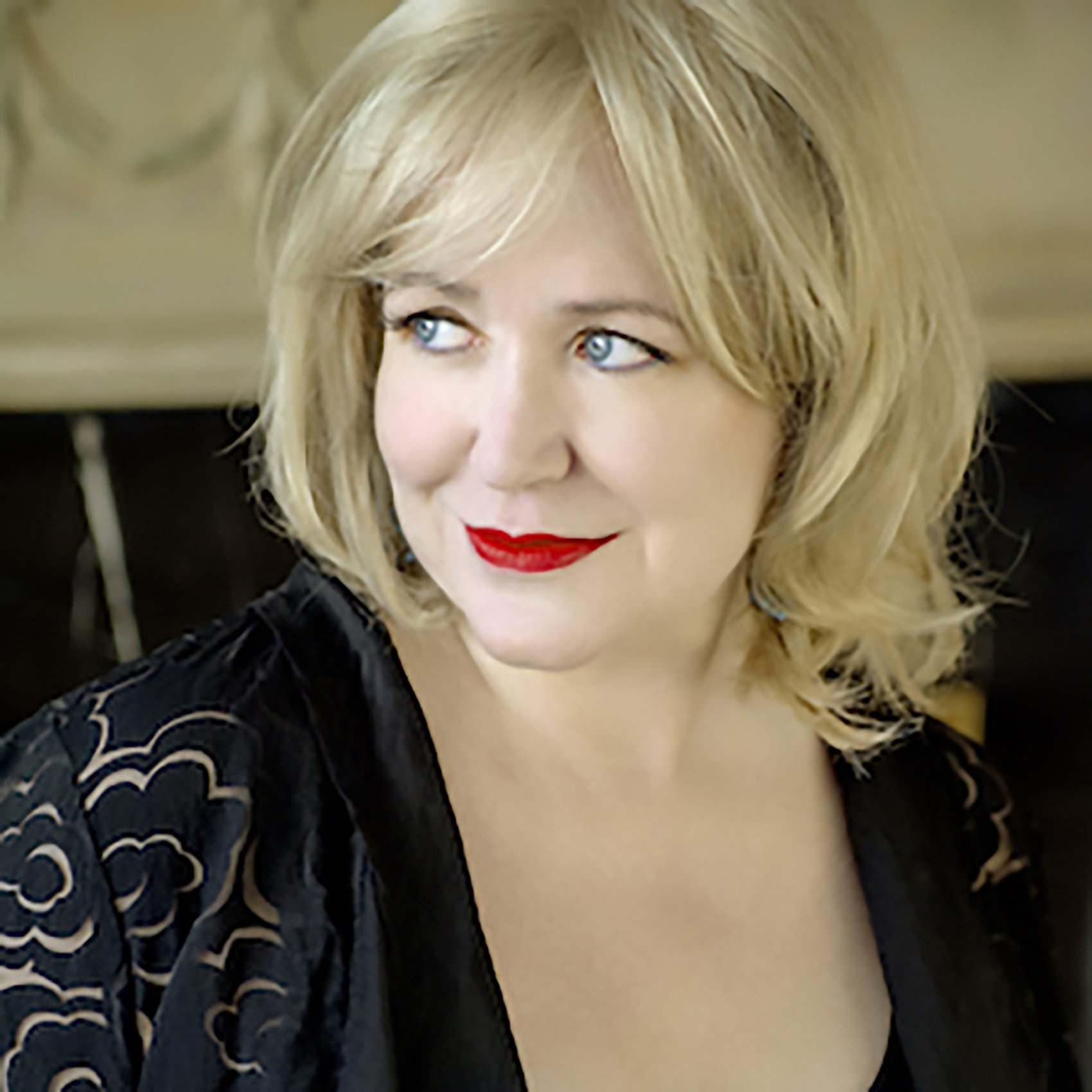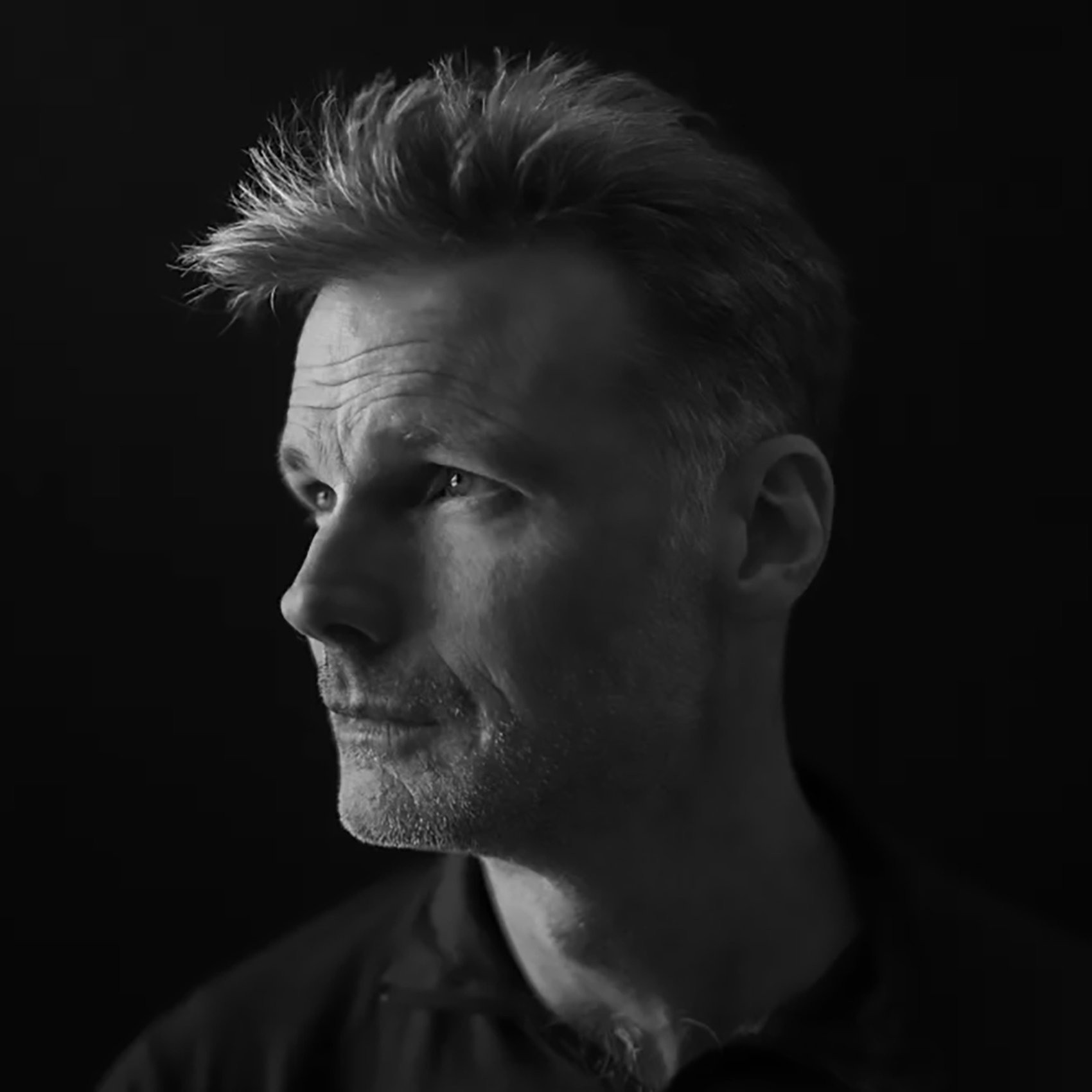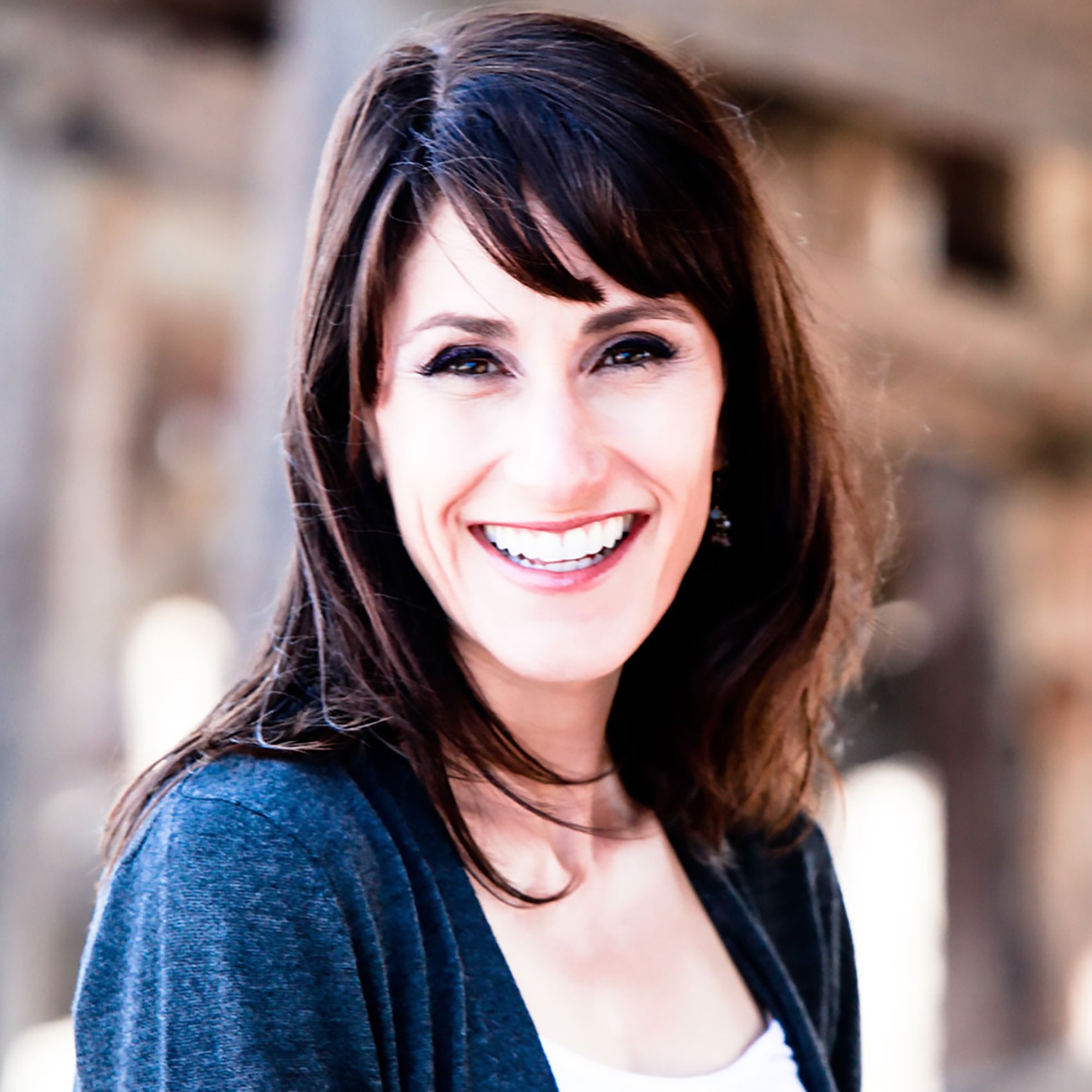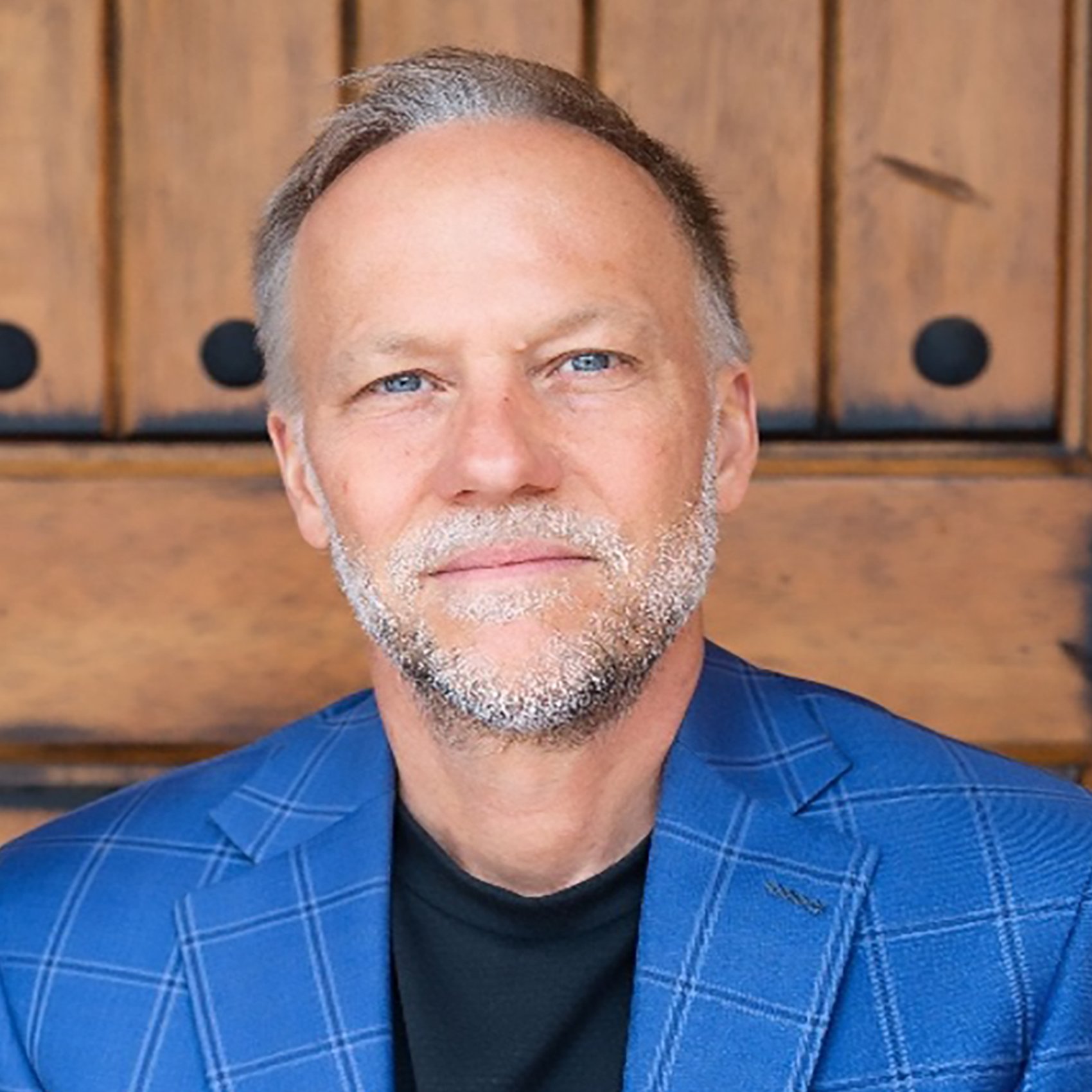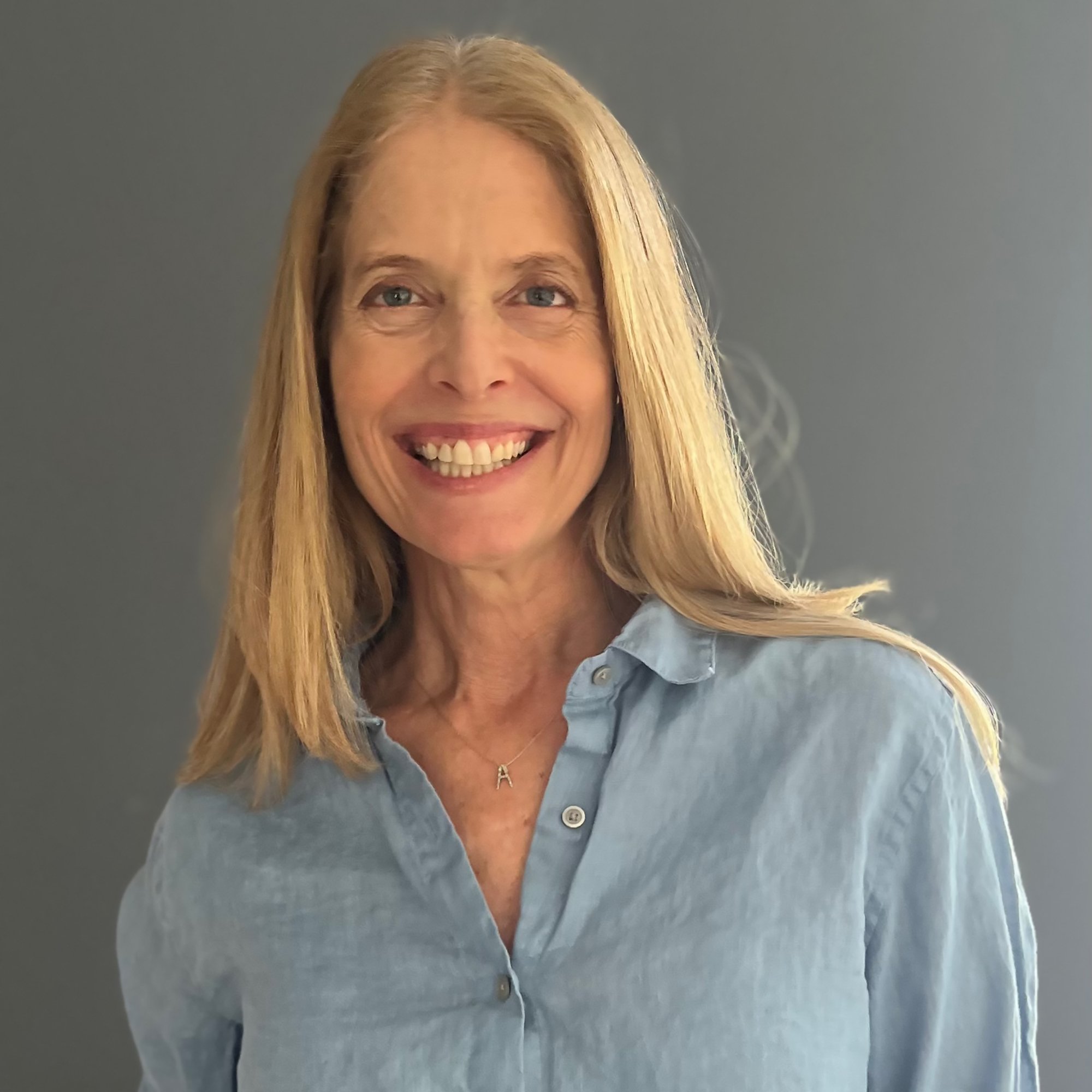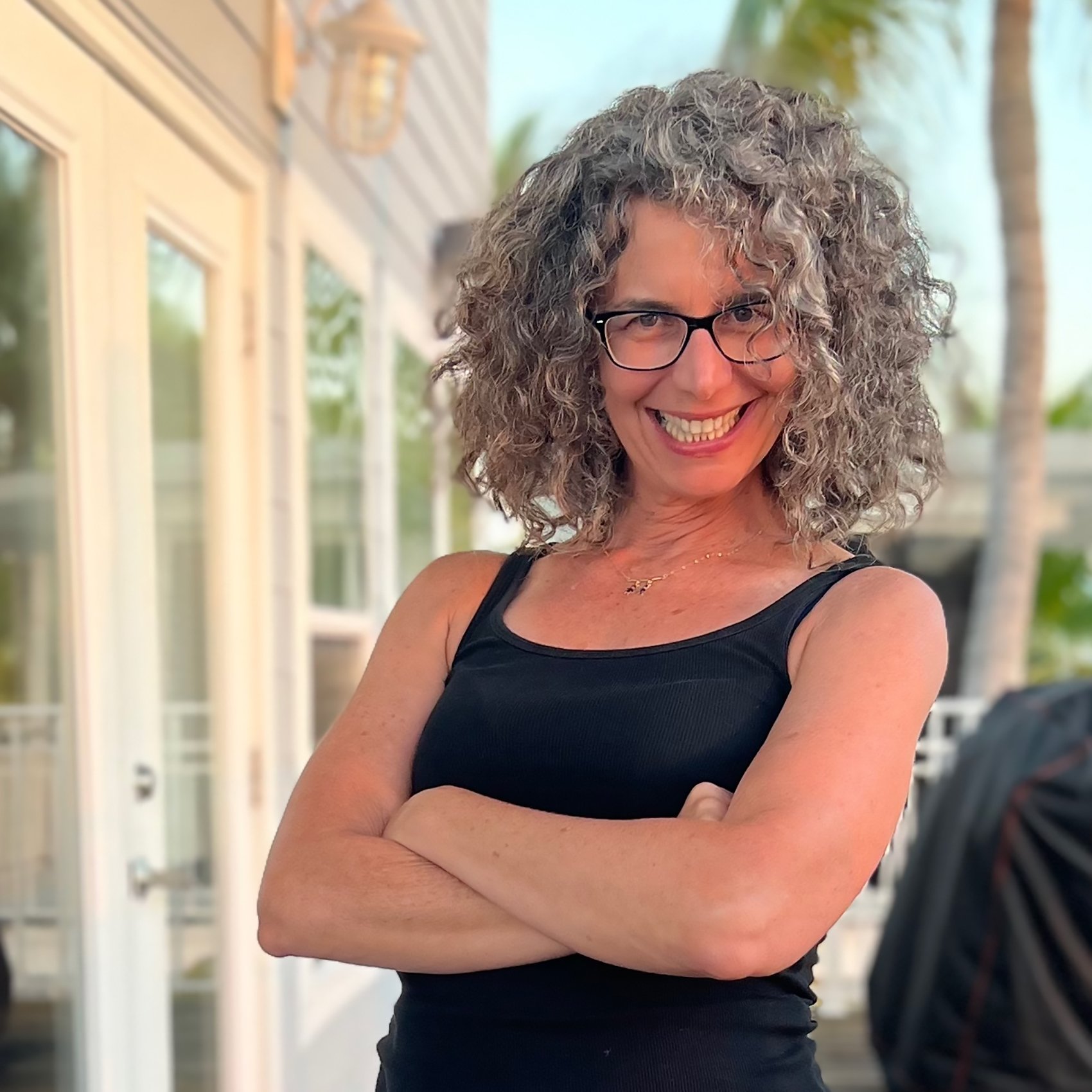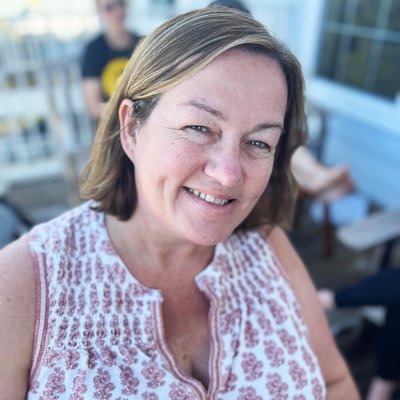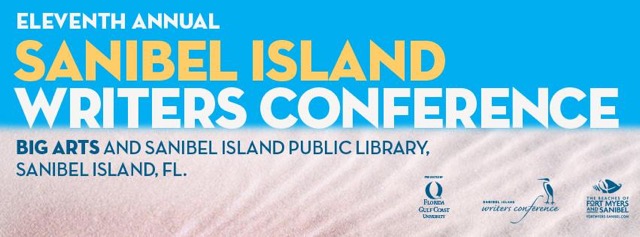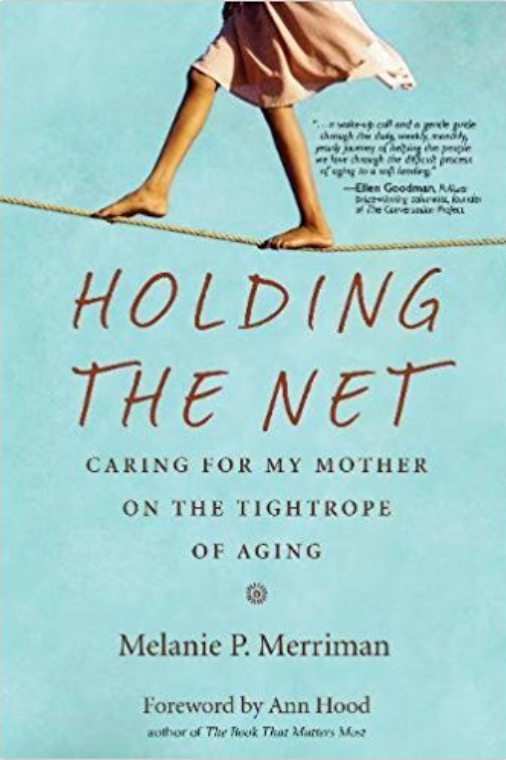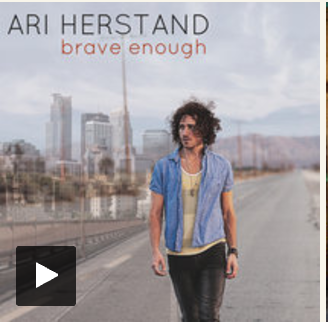Today’s episode features a story by one of our favorite students, Margery Berger. She has been taking classes with us since way before the pandemic. Margery has told stories on our podcast twice before. Episode 46: An Object Is not Just an Object aired in 2018 features a really compelling story about Margery’s obsession with her scale. On Episode 95: What Did It Take to Finally Get Published? Margery told a story about the time her boyfriend said she has ugly hands. That episode is great because we talked to Margery about what holds her back.
Margery submitted this story to the Huffington Post and editor Noah Michelson (@NoahMichelson on Twitter) picked it up. Her story is called, I Hated My Breasts and Was Afraid to Show Them to Dates. Here’s What Happened When I Did.
We also bring you an interview with Noah Michelson who is the head of HuffPost personal and the host of "D Is For Desire," HuffPost's love and sex podcast. Noah gave Margery this note: “What would someone who didn’t have your experience learn from reading your story?” Because of Noah Michelson, we’re thinking about stories in a new way. Maybe you will too.
Margery Berger is the mother of two grown children. She lives in Miami with her two poorly behaved dogs and David. She has written for Home Miami Magazine, Lip Service, Next Tribe and for the Writing Class Radio podcast. Find her on IG: @wherestulipnow
Writing Class Radio is hosted by Allison Langer and Andrea Askowitz. Audio production by Matt Cundill, Evan Surminski, Chloe Emond-Lane, and Aiden Glassey at the Sound Off Media Company. Theme music is by Marnino Toussaint.
There’s more writing class on our website including stories we study, editing resources, video classes, writing retreats, and live online classes. Join our writing community by following us on Patreon.
If you want to write with us every week, you can join our First Draft weekly writers groups. You have the option to join Allison on Tuesdays 12-1 ET and/or Zorina Frey Wednesdays 7-8pm ET. You’ll write to a prompt and share what you wrote. If you’re a business owner, community activist, group that needs healing, entrepreneur and you want to help your team write better, check out all the classes we offer on our website, writingclassradio.com.
Join the community that comes together for instruction, an excuse to write, and most importantly, the support from other writers. To learn more, go to www.Patreon.com/writingclassradio. Or sign up HERE for First Draft for a FREE Zoom link.
Join the community that comes together for instruction, an excuse to write, and most importantly, the support from other writers.
A new episode will drop every other WEDNESDAY.
There’s no better way to understand ourselves and each other, than by writing and sharing our stories. Everyone has a story. What’s yours?
If you would like a transcript of the episode read below:
0:00:18 - Andrea Askowitz
I'm Andrea Askowitz.
0:00:20 - Zorina Fry
I'm Zorina Fry.
0:00:22 - Allison Langer
And I'm Allison Langer, this is. Writing Class Radio, where you'll hear true personal stories and learn how to write your own stories. Together, we produce this podcast, which is equal parts heart and art. By heart, we mean the truth in a story. By art, we mean the craft of writing. No matter what's going on in our lives, writing class is where we tell the truth. It's where we work out our sheet. There's no place in the world like writing class, and we want to bring you in. Today's episode features a story by one of our favorite students, Marjorie Berger. She is rockin'. We love her like crazy, right?
0:01:08 - Andrea Askowitz
I love her so much. I actually can't remember a time before Marjorie was in our class.
0:01:28 - Allison Langer
I remember when she first came and it was at the Low Art Museum. We were. They were sharing their space with us and it was really cool at the UM And she came in and I'm like who's this lady? You know I don't like new people.
0:01:40 - Andrea Askowtiz
Oh, you know what I remember? Yeah, we had a double, like we had a three hour class in the morning and then we had lunch. We got lunch donated by that Indian place, and then Marjorie came, and she came for the morning and then she signed up for the afternoon. That was it. She was hooked from the first day.
0:01:57 - Zorina Fry
See, i associate Marjorie with food, the very thin lady who always feeds us sweets.
0:02:07 - Allison Langer
Because she's an amazing chef.
0:02:09 - Zorina Fry
She really is.
0:02:10 - Allison Langer
Remember when you had that, when you were leaving town and she had that awesome dinner at her house.
0:02:15 - Andrea Askowtiz
Oh yeah.
0:02:16 - Zorina Fry
Yeah, yeah, she made her own bread like sourdough bread. Yeah, She could have just served that and I would have been like thank you.
0:02:26 - Andrea Askowtiz
I'm never going to let Marjorie leave class because she makes me feel like writing class radio is really a community, and also because I love her and also because she's a great writer and she makes great food. She. this is the third story she's told on writing class radio. The first one was on episode 46. That episode is called an object is not just an object. that was way back in 2018. And she told the story about her scale. Oh God, i love that story. And then again, like two years ago, on episode 95, the episode's called What did it take to finally get published? She told the story about when her boyfriend, david, told her she had ugly hands. But what's cool about that episode episode 95, is we have an interview with Marjorie about like, what the hell, what the hell, marjorie, of all these great stories, what is holding you back from sending them out? But what's frickin cool is that a few months ago, october 2022, marjorie sent the story that we're going to hear today out And it was originally published in the Huffington Post. So proud of Marjorie.
0:03:35 - Zorina Fry
Yeah, that's huge. Congratulations, Marjorie.
0:03:39 - Andrea Askowtiz
Yeah, yeah. So after we hear Marjorie tell her story, another cool thing has happened on this episode. I got Noah Michelson, who is head editor of HuffPost personal, on the horn And I talked to him about why he picked Marjorie's story, what he's looking for in general. Basically, though, he said this thing, that that I, that I want to talk about a lot after we talk about Marjorie's story, which is. He said this to Marjorie. He gave this note, which is how would someone who didn't experience this experience, what would that person learn from your story? I just think that that note. How do you write a story that is more universal than just what did you learn? I sort of changed my way of thinking about stories. Yeah, and I talked to Noah about that And I want us to talk about that too. Nice, so stay tuned.
0:04:35 - Zorina Fry
Marjorie Berger is the mother of two grown children. She lives in Miami with her two poorly behaved dogs and David. She has written for Home Miami Magazine, lip service, the next tribe and for the writing class radio podcast. Find her on Instagram at where'stooloopnow.
0:04:55 - Allison Langer
Oh my God, that's so cute Where'stooloopnow. We left out her grandbaby, who is like the love of her life. So she is the mother of two grown children and a grandbaby, that's true.
0:05:05 - Zorina Fry
Noah And one to come, one on the way We'll be back with Marjorie Berger's story after the break.
0:05:14 - Andrea Askowtiz
Hey, writers, if you're looking for a writing community and you want to go beyond the first draft writing class, radio has two opportunities for a second draft class. We meet Thursdays Eastern from 12 to 1 and Monday nights from 8 to 9 Eastern.
0:05:35 - Allison Langer
We also offer a final draft class and that meets every Saturday from 10 to 12 30.
0:05:42 - Andrea Askowtiz
The semesters are 10 weeks To find out more about that, go to writingclassradiocom and click on the classes tab. Hey listeners, Andrea, here I have a podcast recommendation for you. It's called The Shit No One Tells You About Writing. There are three industry insiders, two literary agents and a bestselling author, and they cover all things no one tells you about writing. They talk about the craft of writing, the business of writing, publishing, and they give you words of wisdom constantly for wherever you're at in your writing career. The Shit No One Tells You About Writing and has that for a title. You can find it anywhere. You get your podcasts.
0:06:34 - Zorina Fry
We're back. I'm Zarena Frye and this is Writing Class Radio. Here is Marjorie Burger with her story called I Hated My Breast and Was Afraid to Show Them to Date. Here's What Happened When I Did.
0:06:54 - Margery Berger
I had a double mastectomy when I was 40 years old in 1997. I was married and had two children under the age of 11. Cutting off my breasts when I didn't have cancer seemed radical, but it wasn't radical to me. I have the BRCA1 gene mutation. That means I have a 60% chance of getting ovarian cancer and an 85% chance of getting breast cancer the deadly kind that doesn't respond to treatment. For me those odds felt like 100% Before genetic testing was available. My mother got ovarian cancer when she was 62, and a few years later she died. Then two of my cousins got breast cancer before they were 60, and both of them died. So I got a prophylactic hysterectomy and a double mastectomy. Now I'm 64 and I know I made the right decision because I'm alive.
Before the surgery I spoke to a few other women who had mastectomies. They told me how it hurt to lift their arms after the procedure and how it took months to stretch their skin to accommodate the implants used to make reconstructed breasts. None of that scared me. I knew that a cancer diagnosis and chemotherapy and death were, of course, much worse. I had the surgery and then took my son to his first day of kindergarten three days later, with surgical drains hiding under an oversized shirt. I didn't ask the plastic surgeon how my breasts would look after the reconstruction. I even thought they would look better, fuller, like they did before I nursed two babies. I was wrong. My implants are nothing like the ones many women get to look and feel sexier Mine, the kind you get when the surgeon scrapes every bit of breast tissue out or right under the skin. The skin covering the implants is thin and taut and cold to the touch, a different temperature than the rest of my body.
It turns out that breast reconstruction after a radical mastectomy is a difficult process. After the initial surgery, I had surgery six more times over the next 15 years to deal with the pain caused by scar tissue and also to make my boobs look more normal. Three times the plastic surgeons attached fake nipples made from skin taken from my pubic area, and they always fell off within a month of the surgery. My boobs were ugly and I hated to let anyone see them. Even doctors couldn't hide their disgust. When I went to the dermatologist once a year for a skin cancer screening, I reminded him about my mastectomies and reconstruction to avoid the slightest change in his facial expression, like I saw the last time he opened my paper gown After the surgery. I shut the door when I took a shower or turned away from my husband when I changed my clothes in front of him. I never asked him if he wanted to see or feel my boobs, nor did he ask. I kept my t-shirt on during sex for the remaining 12 years of our marriage and we never talked about it.
After my divorce and more reconstructive surgery, my breasts now with tattooed nipples where the flesh one should have been looked better, but they still weren't normal. They were too hard and too cold. When I started dating it had been 30 years since I was with a man other than my husband. I was anxious about intimacy, about letting a man see or touch my over 50 body, but my breasts made me consider it never dating again. When I told the first man I dated how taking my shirt off made me uncomfortable, he said you never have to take your shirt off for me. We'll play shirts and skins like in a pick up basketball game. Mostly that's what we did for five years.
Three years ago, when I started seeing David, I went over to his house for dinner. We were standing in his kitchen talking and singing. We were drinking a vodka cranberry for me and a scotch for him. He looked at me and said I'm dying to kiss you and leaned in for the kiss. I kissed him back. It felt good. As the kissing got more passionate, we moved to the couch. A few minutes in I pulled away and put my hand on his chest.
My anxiety was growing. I needed to give him my rehearsed speech. I thought about giving it sooner, like on our first date, but that seemed too early. Or afterwards in a text message before our second date. Now I felt I had no choice but to tell him mid-kiss. Before he reached for my breasts, I had a double mastectomy and reconstructive surgery because I have a genetic mutation that causes breast cancer and ovarian cancer. I told him. I assured him I didn't have cancer. I mentioned that Angelina Jolie didn't have cancer either, but had done the same thing. I had the surgery years before Jolie, but most people are familiar with her experience.
I was afraid that my speech about dying and ugly boobs would be a buzzkill, but I needed to warn him so he wouldn't be surprised at what he saw or touched. I felt the familiar panic I always had when I gave my speech. I worried that the man I was starting to like would be disappointed or repulsed. My armpits were sweaty and I hoped that my deodorant was working. Don't worry, I've seen women with implants before. He said Not my kind of implants. I replied In the direct, matter-of-fact way that I'm now used to. He said let's get this over with, and gently lifted my t-shirt over my head. I helped him unhook my bra. He looked at my boobs quickly said they're gorgeous and though I didn't believe him, we continued to kiss.
Since then I've discussed my insecurity about my breasts with David many times. I am not the same person who hid under a t-shirt for so long and never told her ex-husband how afraid she was that he wouldn't desire or love her. After a double mastectomy, i wasted years after the surgery hating and hiding my breasts, but I don't blame myself. I grew up in a looks-obsessed culture that made me think I had to look like Angelina Jolie. I'm happy that Jolie told the world that she has the brachagine mutation and had prophylactic surgery, because she may have saved some lives. Maybe her reconstruction looks better than mine and maybe she wasn't afraid to take her shirt off afterwards.
I was because our culture makes women feel like they have to look perfect. Now I see my breasts as just another imperfection, like the wrinkles on my knees or the age spots on my forearms, and they don't make me more or less lovable. My reconstructed breasts no longer feel like a secret I have to hide. David has normalized my chest for me because he touches me frequently and without hesitation When he touches my breasts and tells me he loves them. I have started to believe him, not because I think my boobs are beautiful or even just okay, but because they're part of me. I showed David the real me by taking my shirt off, but I learned that discussing my insecurities was what really mattered. Now, when David and I spoon and he reaches his arm over my back and rests his hand on one of my breasts, i relax into his touch and fall asleep.
0:14:56 - Andrea Askowtiz
I really think that the crux of this whole story, like the most beautiful part, is this very end, and I want to see what you guys think. But when Marjorie says I showed David the real me by taking my shirt off, but I learned that discussing my insecurities was what really mattered, and that is the part that anyone who didn't have this experience can learn from Basically, i feel like she's telling the world discuss your insecurities. That's the real. That's really what it means to take your shirt off.
0:15:35 - Zorina Fry
Can I first just say, before we dig into the story, how much of a badass this writer is.
0:15:43 - Andrea Askowtiz
Okay.
0:15:44 - Zorina Fry
Number one like what she's talking about, what she did, and then to tell the story Like that alone just needs to be recognized and applauded. Number two I scribbled in my margins here. I heart David because I see like this is not the first story that Marjorie has written about with him in it And he just seems to be this lovable person who just seems to like every piece of her body, like literally, because since she wrote about her Except her hands.
Right, she's got this little series going of needful things like this of her body anyway, but yeah, so I just wanted to say those two things.
0:16:29 - Allison Langer
I'm always about the ending right And what the narrator is really struggling with. So not just the situation, and I feel like it took me a really long time to understand what the difference between situation and story is. But I do think it makes the difference in getting published and also having people really love your story. And here she did this amazing job of not just finding the bigger picture, like the insecurities and talking, but that she didn't keep telling us the same thing over and over. She sort of you could see the gradual incline of knowledge and understanding in each relationship. She did something slightly different, but she really wasn't just talking about breast cancer, she was talking about how it really impacted her life and we see the growth. But then when she throws in the insecurity at the very end and that's like discussing that, so she sort of wraps everything up, but without it sounding like a wrap up. And I know I'm like off. You know like Andrea has this face, she's looking at me like what are you trying to say? But so let me just use an example. So my Esplica sorry, my reconstructive breast no longer felt like a secret I have to hide.
First of all. That is another thing. Insecurities and secrets. We carry them around with us so much, thinking people aren't gonna like us for them and they're gonna make fun of us From middle school, elementary school, all the way up to now. Right, we're so afraid to share, but every time you and I have talked about this many, many times, and with Serena too, is that when we do share, people are drawn towards us, not away from us, and so what I see here is her examples of showing us that, yes, the other guy said shirts and skins, they managed it, but she didn't deal with it.
0:18:19 - Andrea Askowtiz
She had kept it secret. Well, when you're keeping your shirt on for 12 years in your marriage and then you're dating someone and you're playing shirts and skins, she was obviously shirts.
0:18:29 - Allison Langer
Yes, because she's so afraid somebody's not gonna like her.
0:18:32 - Andrea Askowtiz
Yeah, totally Okay, i'm with you now. Yeah, she was keeping the secret. Yes, yeah, in a managed way.
0:18:38 - Allison Langer
So meeting David and she there's probably a million other Davids out there that would have been equally as accepting probably almost all the Davids out there, And if they weren't the Davids then they shouldn't have been in her life anyway right, If they actually gave two shits about this shit. So the fact that he touched her and without hesitation, and she warmed up to it and was like, okay, I'm okay, They played a game and he did it correctly, Yeah, So she was able to let go. So I think it's just a really good lesson in picking your friends and picking your spouses and picking the people you wanna be with. Like that you are who you are And they're just gonna have to accept it or get rid of them, right? So I love that.
0:19:19 - Andrea Askowtiz
See, I love David in this too. I don't think David is the hero here, because it's probably true what you just said, that if our narrator was open and able to discuss her insecurities, then all of the men before this one would have also been cool And she would have felt liberated because it was her own holding onto the secret. That's what she's telling us. at the end, I learned that discussing my insecurities was what really mattered.
0:19:48 - Allison Langer
Yeah, no matter what your insecurities is, i'm gonna say because I think that sometimes we all of us need a push. We need somebody that we can trust, that we throw it out there and it actually works. So there's probably a million examples she can tell you of a time she shared an insecurity and somebody threw it back in her face And it hurt. So those people aren't meant to be in your life. It's time to get rid of them. If you can't trust them with your secrets and your insecurities, they should not be in your life. Period, the end. That's how I feel at this age. Maybe took 50, 54. Now I agree with you. Why are you yelling No? no, because I get. You know how I get. I get so excited about something And I'm just really like I really, you know, after spending-.
0:20:28 - Andrea Askowtiz
If you can't deal with my secrets, fuck you All.
0:20:31 - Allison Langer
Right, i'm out, so I'm in, though I can deal with your secrets, like I just spent a whole afternoon at high school, you know, subbing, and the day before and now that I'm doing that, i'm seeing these kids. And it's not that I don't see my own kids, but all of the kids and the kids we took to Guatemala. Everyone is holding onto secrets, so worried people are not going to like them.
0:20:50 - Zorina Fry
Why, speaking of kids, what's so tender about this story is that it brings me back to like a first love, you know, like the whole making out, and then it's like, oh, it's time to show each other what we got. And it's just like she's so shy And she, the way she just describes just her insecurity, just kind of reminds me of that little you know. You know teenage love.
0:21:17 - Andrea Askowtiz
That moment when she puts her hand on David's chest and she like, kills the moment, she's afraid she's going to kill the moment She goes into a rehearse speech.
0:21:25 - Zorina Fry
Yeah, and what that rehearse speech was. It was like an exposition of what the deal was with her. You know that snaps us back into the moment and any type of romanticism that was going on is just like the record scratched right. Oh my God, was she sad. Was she sad? And I'm still like. I'm still eye hard, david, because you know he answered, he just responded the right way, he was the right sounding board for her.
0:21:57 - Andrea Askowtiz
I heart David, I just heart Marjorie. More I don't think you do, I do. I heart David, I do.
0:22:05 - Allison Langer
I love David, i love that he was cool, But it always goes back to the narrator. You know what is to say about the narrator, So I think that's why Andrea's high hearted.
0:22:14 - Andrea Askowtiz
Marjorie.
0:22:15 - Allison Langer
Exactly Thank you In her defense Right. Thank you.
0:22:18 - Zorina Fry
I want to go back to just the description. Like that just made me just cringe for the narrator She's talking about, oh my goodness, like the nipples fell off and the doctor was disgusted. Like, come on, like the doctor is supposed to be the person who's seen it all And there that person is disgusted, i mean. So of course there's going to be some insecurities on top of anything that else that she had going on.
0:22:48 - Andrea Askowtiz
She built a very good case for her insecurity there. Excellent, well done. Good writing, great details.
0:22:57 - Zorina Fry
The other thing was the description of her breast reconstruction. She, i mean this girl is keeping it real, because society makes it seem like it's just a thing that you go in for to have done, or I had some work done and you know, now I'm great. Look at me and Parkie, all this type of you know stuff, and that's not the case. Like someone said, that it was hard to lift their arms. You know, she just really brought the realness and what it means to you know, get your breast done.
0:23:31 - Allison Langer
You know She sacrificed vanity for life. She did.
0:23:36 - Andrea Askowtiz
But what I think is so interesting, or one thing that I learned, was that a double mastectomy, full on to deal with the possibility of cancer, is different than a boob job. They scrape out all the skin, So you start with nothing, and so getting reconstructive surgery in her case was different, and I didn't know that. I mean, she didn't know it either. She thought she was just going to get some perky boobs put on, exactly. So I think that's a very important lesson for the world, what she went through was different.
0:24:10 - Zorina Fry
Yeah, i mean, she educated us on so many things, yeah, and while bringing us into her world and into her mind. It's just such a well-written story And I remember hearing versions of this, so I was really I was so proud to see this out in the world. I was just curious to see what the final, final, final draft will look like, or final copy.
0:24:37 - Andrea Askowtiz
That's cool because you and we've all been through lots of revisions of this story with Marjorie And she's had it focused in different ways, like on all the operations. This one now is really about secrets. It's really about her vulnerability Or, like what she came to say is that it's really important to be emotionally vulnerable. I mean, she's been working with this situation for many years. Before we get to Noah Michelson. I know that that part. right there, I showed David the real me by taking my shirt off, but I learned that discussing my insecurities was what really mattered. That came about because we know that Marjorie learned that she was OK with her breasts and that she was OK with David because David was so cool with her breasts. But that line right, there was Noah pushing her one step further. I love that that came through.
0:25:34 - Allison Langer
I love it. And I just want to say this before we get to hear from Noah is that sometimes we think our story's done and it's not. And it took years for her to figure this out, even after she started writing it, And that's why it's getting published now And that's why she finally came to this, because it took this long.
0:25:52 - Zorina Fry
That's a good point. It's true, you know, sometimes a story is not done because the writer's not done dealing with whatever issue it is at hand.
0:26:01 - Allison Langer
Copy that We haven't learned the lesson yet Awesome.
0:26:04 - Andrea Askowtiz
Marjorie Berger for learning that lesson. Yeah, we got to take our shirts off all the way. By shirt, I mean like open our heart. We got that.
0:26:15 - Zorina Fry
We got that.
0:26:16 - Allison Langer
I was like you want to see that right now on camera. We all thought it My boobs have a face for radio.
0:26:23 - Andrea Askowtiz
Yeah, mine too. Up next is Noah Michelson. He is the coolest. He really is known in the writer circles for being very responsive. I mean, seriously, he's a beloved. I got a fast rejection, immediate, immediate rejection. I mean, he just flies through his emails. He's awesome. So I love him. So many writers love him. He started off as a poet, zarina, and now he is the head of HuffPost Personal And he's also the host of the podcast, which I love, called D Is For Desire. Here's my conversation with Noah Michelson about what he looks for and why he does what he does. So what drew you to Marjorie Berger's story, like what made you say yes?
0:27:16 - Margery Berger
We were doing a project called Busted for October, which was all kinds of people women, non-binary, even men possibly talking about their relationship with their breasts for breast cancer awareness month, and not just about breast cancer but just sort of. You know, it's still a taboo topic in some ways to have really smart, honest conversations about our bodies, especially that area of the body. There's still so much about it that our culture loves to deride or fixate on, and so we want to just keep telling in their own words, their own stories about their lives. And when Marjorie wrote me I was like this is super interesting. Someone who's obviously been on a really long journey to sort of understand how she felt about herself had some really low lows and then found a way to sort of make peace with what had happened to her. And that's what I love in a story I love a journey, I love a transformation, I love a lesson learned And I love something that the reader can learn right along with the author as well.
0:28:22 - Andrea Askowtiz
Well, did you know that breast reconstruction after a double mastectomy was a different procedure than breast augmentation that a woman might want to do to make her boobs bigger and sexier? Did you know that?
0:28:39 - Margery Berger
I did, because the thing about this job is that I get invited into people's lives in these really intimate ways, but often my own life ends up syncing up with them, and so I've had family members who've gone through something very similar, and so I'm intimately aware of this, and I know how hard it can be for a person usually a woman to deal with this, to have your entire way you see yourself radically change overnight, literally overnight. And so, yeah, i did know about this, but I also knew that a lot of people don't know about this. Not another thing. I don't know that what I do is a service exactly, but I do like to think that people do learn things that maybe they didn't know, and that I sometimes think of how post-personal is like a Trojan horse in a way, because you're getting a really good story And you just sort of along for the ride And then by the end you're like, oh wait, i didn't know that this was a thing.
0:29:34 - Andrea Askowtiz
So are you saying, all this other stuff pours out? Is that what you mean?
0:29:38 - Margery Berger
Exactly, and also that you just we used to say about HuffPost in general that you get your vitamins with your junk food, and that's what I like to think it sort of happens with HuffPost. Personal, too, i think Marjorie's story is we get people in with a headline about how she hated her breasts and she was afraid to go on dating, but then you get in and you're like, oh, this isn't a tawdry piece, this isn't a clickbait piece. This is a real person's life And she's talking about it in really open and honest ways. So I love that. I love that both can sort of exist. It can be a great story, but we can also learn from it at the same time.
0:30:13 - Andrea Askowtiz
So cool. My second question is about that learning piece that I know you as an editor are really interested in And I know specifically because Marjorie and I are friends and she's one of my students And she was like listen to what Noah wants now And tell me if I got this right. What would someone who didn't have this experience learn by reading your story? Is that what you asked, or something like that?
0:30:39 - Margery Berger
Yeah, something just like that. And a lot of my authors are first time authors or people who've never written anything before, who just have a great story, And so they originally come to me with a great story And then I say this is great, But how do we take this to the next level? So what can a reader and we have hundreds of thousands, sometimes millions of readers reading a story which is really incredible, What will a person who's living in Topeka, Kansas, or who's living in London, England, who doesn't know anything about this, what can they learn from this? I think that takes a story from the personal, which is great, but to the universal, And so I think, whenever we can, look for ways that we can connect to other people because that's so much of what I feel like I'm on this earth before to help people tell stories.
But also, how do I connect to people? How do I connect people? So, anytime I can have an author, take it beyond just the thing that they experienced in their own home, in their own life, in their own hospital room. How do we then explode that out and say you might not think that this relates to you, but I bet there's something here that you can learn from this, or you can say I felt that way too.
0:31:50 - Andrea Askowtiz
So I've been writing stories for 20 years. I've been teaching for probably 15. And I've always thought that the way to elevate a story is to take it from this is a situation, but to elevate it. This is what I learned, but you elevated it twice. It wasn't just what Marjorie learned, because at first she learned that she's okay with her breasts as they are, but what she learned learned because of your prodding is that the real revealing of herself, the real getting naked, was an emotional, verbal nudity.
0:32:31 - Margery Berger
Completely yes, and there are so many. I mean, you know this as a writer, you know this as a teacher. There are so many things that happen when we sit down to tell our story And sometimes when we start, we think we know where we're gonna end up and we end up somewhere totally different. Part of the reason that I love writing is because of that alchemy right, that thing that you start with something and by the end of it it's transmuted into something else. Maybe it's not gold, maybe it's something else, and I find that transformation absolutely thrilling and invaluable. So, yes, there can be multiple transformations, and the one that Marjorie had, the two that she had, it just took us from a story something that you would tell your friend happened to you on Saturday to know this was life-changing, and I only sort of realized it when I was looking back on it in this way.
0:33:22 - Andrea Askowtiz
But this is life-changing for everyone, because if everyone becomes as vulnerable as Ivy came, if everyone talks about their insecurities, they will be okay.
0:33:35 - Margery Berger
Yes, and we probably won't have these cultural stigmas that we have. Maybe Marjorie wouldn't have felt as bad about herself as she did in the first place If we said bodies come in all kinds of shapes and sizes and they're all great and things are gonna happen to us over our lives. they're gonna change the way we understand our bodies and the way they look, and that's gonna be okay too.
0:33:56 - Andrea Askowtiz
Yeah, I mean, I just I call me dense or whatever, but I swear I've learned this lesson before. But it took the way that you asked Marjorie to help me as an editor and as a writer see what I'm pushing for in a story. More I just I'm so thank you for that. So you kind of already talked about what you look for in a story. I wanna know when you're looking at a story, reading submissions like what's a fat? no, right away.
0:34:23 - Margery Berger
Oh, that's such a good question. I think it is a story that's just sort of like. You know, I'll get stories where it's like I really love gardening, here's why I love gardening. I need there to be something at stake Again, I need there to be a transformation, a learning, something that happens, so something that's just sort of like a page out of your diary or just a play by play of an accident that you saw happen. That was kind of grisly, like things like that. Like that could make a story.
But why should I, as a person who is flipping through my phone and is only gonna take 0.2 seconds to choose on what I'm gonna click, what is it about that story that's gonna make me wanna read it? And once I click in there, how am I gonna connect to it? What's gonna make me, say, at the cocktail party I'm at or around my dinner table with my friends, I read this story today and I learned this thing. or I never knew this, or it changed the way I thought about that. So anytime I get a story that's just sort of very straightforward and there isn't a whole lot of perspective there, chances are I'm not gonna take it. I might be able to sort of coax the author and say I did those with Marju in a very, very small level, but saying it sounds like something's here. But what are you really trying to say with this? Sometimes I can coax it out and we can go from there, but a lot of times I'll just say that that's not the right story for me.
0:35:50 - Andrea Askowtiz
Yeah, Is there anything else that like bad formatting, just like your name, wrong like stuff like that, especially for new writers.
0:36:01 - Margery Berger
I think there's a tendency to overwrite, to be really flowery with their language, to be using an adjective to define every single object they have, and I think they think because that's like good writing and it's not, and that is an alarm bell for me. Again. I could take two hours and sort of defang that story and like get rid of all that language and we might have something good. I don't have time to do that. So I really think people should just sort of tell your story. I always say to people tell it like you're telling your story to a good friend, should be conversational, it should have an easy flow to it. I usually say start at the beginning and end at the end. You know, usually I want a middle. I mean a beginning, a middle and an end.
Sometimes people have crazy formats and they're doing little like blurbs that are linked together and they're numbered and that can work once in a while. I think if you're really deaf, then you know what you're doing. Sure, i'll take a crazy format, i'll take a story that you know is in second person. It's really hard to do. So I think really just concentrating on telling your story the best way you can. That's how you're going to win, the simplest way. One other thing I'll say to you too. I think a lot of people think they need to peg their story to something. So I've got a story about serving in the military. I'm going to send it to you on Veterans Day. I don't care about that, you know what I mean. Or I saw this movie and there was a subplot in 10 minutes near the end, where they kind of talked about this thing and it relates to me in this way. I don't care about that. Most people haven't seen that movie. Just, your story should be able to stand up on its own.
0:37:42 - Andrea Askowtiz
If you've got a great peg for it, awesome Well that's, then, unique about HuffPost Personal that it doesn't have to be pegged to a news something.
0:37:52 - Margery Berger
We just want great stories. Yeah, exactly.
0:37:55 - Andrea Askowtiz
I would just add to that that I think the most important thing in a story is the truth.
0:37:59 - Margery Berger
Yes, completely, and in our contract that you'd have to sign with us if we did end up accepting your piece. This is so literal, but we literally make you agree that what you're writing is true. We want real stories by real people and we want the truth, and the truth doesn't have to be something huge. I think even with Marjorie's story. There's a lot of truth in there that she was confronting and that she hadn't realized before, and so sometimes the truth is the whisper in the back of your head, and once you say it out loud or once you write it down, you suddenly realize actually how profound it is, and so I love that. I love that you said that The truth should be haunting the story in some way. It should be there, yeah.
0:38:44 - Andrea Askowtiz
Cool. Ok, you mentioned how you don't have time to pick out all the extra adverbs And you are famous in the writing circles for getting back to writers immediately. Yeah, so OCD like what's going on. How do you do it?
0:39:03 - Margery Berger
You know what it is. I've been a writer, I've been someone waiting for that email to come back to me, and I know, even if it's a rejection, I want to hear from somebody. And so if I get an email from someone, I always respond to it, even if it's just to say I can't take this And I can't. I'm taking one out of 100, one out of 150 pitches right now.
0:39:26 - Andrea Askowtiz
Is that one out of 150 a week? Yeah Dang.
0:39:31 - Margery Berger
Yeah, we get so many pitches, yeah, it's very tough to get in there And that has to do with like other pieces that we have in our queue. It's so many reasons. And people are always like can you give me a reason? I will say and I'm being completely honest here, 95% of the time it's not because I didn't like the piece. It just was not a fit for us, and I usually don't give people a list of reasons why, because I also want to encourage people.
I think rejections can stop people on their tracks and they think, well, I'm not going to do that again, absolutely not. I get rejected all the time And you know my background is in poetry. I went to grad school to be a poet. That's a hard row to hoe And you know I would send my little poems out and you know I would say eight out of 10 times they got rejected, you know. So it's just like that's part of being a writer, and sometimes that means you go back to the piece and you give it another go. Sometimes it means you know that piece is ready to go and it just wasn't right for that person and you send it to five more people. So I'm super busy, but my priority are writers and making sure that they feel heard and making sure that I get back to them. Same thing, too, if you don't hear back from me. Something went wrong. It went into my spam. I accidentally deleted it. Nudge me. I love a nudge. I'm never going to be bad about a nudge.
0:40:52 - Andrea Askowtiz
Honestly you really are. That's why you're famous. Everyone loves you.
0:40:57 - Margery Berger
I will also just say that that is. I think that is the thing that is most important to me and my job, Aside from telling the stories and honoring people's writing. It is that people feel heard, because also, we're publishing really intimate, difficult, sometimes scary pieces, And so if you're going to trust me with this part of your life this part of your life maybe you've never told anyone about I want to honor that And I'm going to be. And even if I can't take it again, you've trusted me to read this thing And I feel like I owe you that, And so I think it's the least I can do. I understand why other editors don't get back to people, but that's never going to be the way that I can operate.
0:41:38 - Andrea Askowtiz
They just must be overwhelmed. I mean, I don't think anyone's mean spirited, They're just if you're getting 100 or 150, some other publications are too.
0:41:47 - Noah Michelson
Editors are too.
0:41:48 - Andrea Askowtiz
Yeah, it's a tough world. Well, that's all I wanted to ask you, and I just wanted to thank you, and thank you for taking Marjorie's story and for giving her that note that punched it up just that much to make it so good.
0:42:01 - Noah Michelson
It was an incredible piece. It has hundreds of thousands of views. At this point I've gotten emails from people saying you know, and comments, people saying they felt seen because of it. That's what you, that's what we want, and just you know, if anyone is listening to all your students like, just keep writing, i think a lot of us. It's a compulsion. We couldn't stop if we wanted to. But you know, it's amazing that you've been doing it for 20 years and you're helping people tell their stories.
0:42:26 - Andrea Askowtiz
That's a huge deal, so thank you, I love it so much. I'm a I'm like a storytelling missionary. I want everyone to tell their stories. The world would be so much better.
0:42:35 - Margery Berger
The world does get better this way. Amen, yes, exactly.
0:42:39 - Andrea Askowtiz
Thank you very, very, very much.
0:43:05 - Zorina Fry
Thank you for listening and thank you, marjorie Berger, for sharing your story And thank you, noah Michael Sint, for coming on our show.
0:43:13 - Allison Langer
Writing Class Radio is hosted by me, allison Langer, me Andrea Askowitz and me Zarena Fry. Audio production is by Matt Cundle, evan Serminsky, chloe Imol Lane and Aiden Glassy at the Sound Off Media Company. Theme music is by Marne Nino Toussaint. There's more writing class on our website, writingclassradiocom, including stories to study, editing resources, video classes, writing retreats and live online classes. Follow us on Patreon to join our first draft weekly writers group. You have the option to join me on Tuesdays, 12th to 1st Eastern, and me, zarena, wednesdays. You'll write to a prompt and share what you wrote. If you're looking to take your writing to the next level, we have two second draft writing groups. Each week, three people bring a finished draft for feedback.
0:44:09 - Andrea Askowtiz
If you're a business or have an organization of some kind and you want to punch up the writing within that organization or business, we are your teachers. Check out all of our classes on writingclassradiocom.
0:44:27 - Allison Langer
Using the community that comes together for instruction, an excuse to write and, most importantly, the support from other writers To learn more. Go to patreoncom. A new episode will drop every other Wednesday.
0:44:43 - Zorina Fry
There's no better way to understand ourselves and each other than by writing and sharing our stories. Everyone has a story. What's yours?
0:45:10 - Joel
Hey, it's Joel Imps and host of that nerd dad podcast. Look, finding time for yourself is an important part of parenting. It allows us to be the best version of ourselves for our kids. So tune in every week to talk about parenting, culture and politics. Whether you're an exhausted parent looking for a laugh or a stone teenager who clicked on this by mistake, this is a podcast for you. You can find me on Spotify, apple, google, the Dean Vendell network or at thatnerddadca.


